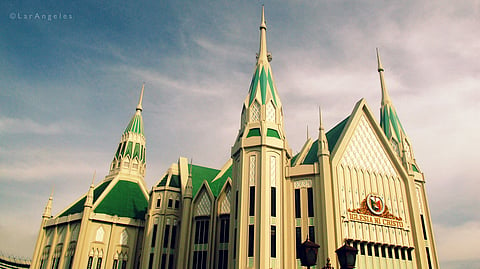
- NEWS
- the EDIT
- COMMENTARY
- BUSINESS
- LIFE
- SHOW
- ACTION
- GLOBAL GOALS
- SNAPS
- DYARYO TIRADA
- MORE

The Iglesia ni Cristo (INC) marks its 110th anniversary today with a milestone that stands as a testament to its enduring legacy and far-reaching influence.
Founded by Felix Y. Manalo on 27 July 1914 in Punta, Santa Ana, Manila, the INC has grown from a small congregation into a global religious force with millions of members.
And, beyond its religious framework, the INC has emerged as a significant socio-political and cultural entity in the Philippines and beyond, demonstrating its influence in ways that extend well beyond the spiritual realm.
The INC’s growth over the past 110 years is nothing short of remarkable. From its humble beginnings, it has expanded to over 150 countries and territories, with its members belonging to more than 130 nationalities.
This expansion is a reflection of its disciplined organizational structure and the unwavering commitment of its members. However, the INC's influence is not limited to the number of its adherents; it is also deeply entrenched in the socio-political fabric of the Philippines.
One of the most notable aspects of the INC’s influence is its political clout. The church practices bloc voting, where members are encouraged to vote as a single unit in elections.
This practice has turned the INC into a political kingmaker, capable of swaying election results.
Politicians often seek the endorsement of the INC, recognizing the potential of its unified vote to tip the scales in tightly contested races. This political leverage has enabled the INC to maintain a strong presence in the corridors of power, ensuring that its interests and those of its members are safeguarded.
The INC’s influence extends beyond politics into social and humanitarian efforts. The church is known for its large-scale philanthropic activities, often organized through its Felix Y. Manalo Foundation.
These initiatives include disaster relief operations, medical missions, and livelihood programs, which have benefited countless numbers of individuals in the Philippines and abroad.
For instance, the INC’s response to natural disasters like typhoon “Yolanda” (Haiyan) in 2013 showcased its capability to mobilize resources and manpower swiftly and effectively, providing much-needed aid to affected communities.
Furthermore, the INC has made significant contributions to the cultural landscape of the Philippines. It has built architectural marvels such as the Philippine Arena, the world’s largest indoor arena, which serves as a venue for religious gatherings, concerts and sporting events. The construction of such monumental structures not only underscores the INC’s organizational and financial capabilities but also its role in promoting Filipino culture and heritage.
Education is another area where the INC has made its mark. The church operates educational institutions, including New Era University which offers a wide range of academic programs. These institutions provide quality education and instill values of discipline and service among the youth, contributing to the development of a well-rounded and morally upright citizenry.
In addition to its socio-political and cultural contributions, the INC has also ventured into media and communications. It runs a network of television and radio stations, as well as print and online publications.
These media outlets serve as platforms for spreading the church’s teachings and values, and they also provide news and entertainment to the broader public. This diversification into media has enabled the INC to maintain a strong presence in the public consciousness and to influence public opinion on various issues.
These media outlets serve as platforms for spreading the church’s teachings and values, and they also provide news and entertainment to the broader public. This diversification into media has enabled the INC to maintain a strong presence in the public consciousness and to influence public opinion on various issues.
The INC’s success and influence can be attributed to its strong leadership and organizational discipline. The church is currently led by Executive Minister Eduardo V. Manalo, who has continued the legacy of his predecessors by steering the church towards further growth and modernization. Under his leadership, the INC has embraced technological advancements and adopted modern management practices, ensuring that it remains relevant in an increasingly digital and interconnected world.
As the INC celebrates its 110th anniversary, it stands not only as a religious institution but also as a formidable force in the socio-political, cultural and humanitarian spheres. Its influence is a reflection of its ability to adapt to changing times while staying true to its core values and mission.
The INC’s journey over the past century has been one of growth, resilience and impact, making it a significant player in shaping the future of the Philippines and beyond.
